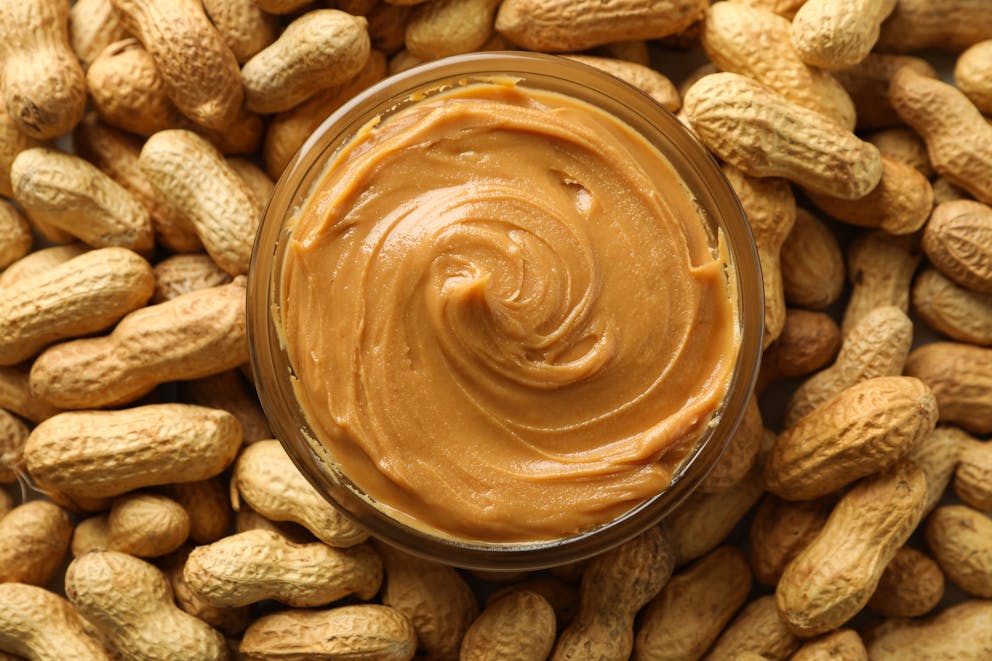Why You Get Oxalate Type Kidney Stones
Picture this: you're enjoying your favorite foods, not knowing they could be the culprits behind those painful kidney stones: oxalates, seemingly innocent compounds in various foods, team up with calcium to form these unwelcome guests.
It's a health puzzle that many don't realize they're assembling until it's too late. Embarking on a journey to thwart oxalate kidney stones, we're set to reveal the covert realm of oxalates and their part in crafting these unwelcome crystalline formations.
You'll learn which high-oxalate foods might be better off your plate and how gut microbes defend against these crystalline invaders.
Moreover, we delve into the paradox of antibiotics' impact on intestinal wellness while investigating probiotics and traditional cures as partners in this skirmish. Let’s make sure your next meal supports not just pleasure but also prevention.
Understanding Oxalate and Its Role in Kidney Stones
Oxalate is a naturally occurring compound in many foods, including fruits, vegetables, nuts, and grains. When oxalate levels in the body become too high, they can bind with calcium and form crystals, leading to kidney stone formation.
Understanding the sources of oxalate and how it interacts with calcium is crucial for managing kidney stone risk and promoting kidney health.
What Are Oxalates?
Oxalates are natural compounds found in many foods. They can team up with calcium to form kidney stones, a match nobody wants to see winning. When oxalate levels are too high, they start looking for partners, and calcium is often picked first.
Foods like spinach, beet greens, Swiss chard, and peanuts pack a lot of oxalates. So, while these might be nutrition champions, they could lead you down the rocky road of kidney stones if you are not appropriately proper in your diet.
The Connection Between Oxalates and Kidney Stones
Kidney stones aren't just painful; they're also preventable. Grasping the mechanism by which oxalate and calcium team up to create these bothersome intruders is vital.
When there's too much oxalate in your system—more than your body can excrete—it binds with calcium primarily available from what you eat or drink.
This combination forms crystals that can grow into stones if conditions allow it. It's like throwing a party where uninvited guests keep showing up until it’s out of control—a situation best avoided by managing dietary choices smartly.

High-Oxalate Foods to Avoid
If you're battling kidney stones or looking to dodge them like a pro, you must eye those sneaky oxalates in your diet. Some foods are high in oxalates, including spinach, beet greens, Swiss chard, and peanuts.
These might be health heroes under normal circumstances but can turn into villains if you're prone to kidney stones.
Oxalates combine calcium in your body, forming crystals that can lead to kidney stones. Imagine these as tiny rocks causing a traffic jam in your kidneys—not something you'd want. So, what's on the no-fly list?
Spinach might power up Popeye but could trouble someone with stone issues due to its high oxalate content. Peanuts are another snack that needs watching.
While they offer protein and healthy fats, their oxalate levels mean they could contribute more towards forming pebble parties than muscle mass for folks at risk of kidney stones. Striking the proper equilibrium and opting for clever alternatives when needed is critical.
The Crucial Role of Gut Microbes in Preventing Oxalate Stones
Gut microbes are crucial in preventing oxalate stones by metabolizing oxalate and reducing its absorption in the intestines. The composition and diversity of gut bacteria influence oxalate metabolism, impacting the risk of stone formation.
Understanding this relationship underscores the importance of maintaining a healthy gut microbiome for preventing oxalate stone formation.
Understanding Oxalobacter Formagens
Oxalobacter formagens might not be a household name, but it's a friend to your gut.
This beneficial microbe has one job that deserves applause: breaking down oxalates, which are compounds found in many foods and can lead to the formation of pesky kidney stones when they team up with calcium.
If you're nodding along, thinking, "Well, I eat spinach; am I at risk?" The presence of oxalobacter formagens works hard to reduce that risk by digesting these oxalates before they can cause trouble.
But there's a catch—our modern lifestyle choices, particularly antibiotics use.
The Impact of Antibiotics on Gut Health
Antibiotics are like the Hulk in your microbial community—they smash through bacteria without much discretion. While they’re life-saving in bacterial infections, certain antibiotics wreak havoc on our gut microbiota balance.
Ciprofloxacin (Cipro), for example, can significantly diminish the population of our good guy O.formagens.
This imbalance doesn't just open the door for potential kidney stone formation—it also signals an urgent need for us to diligently support our gut flora through probiotic-rich foods or supplements post-antibiotic treatment.
The Side Effects of Cipro
Cipro, a widely used antibiotic, has been linked to some concerning side effects. These include tendon ruptures, hypoglycemia (low blood sugar), and various mental health issues.
Tendon Ruptures
Imagine your tendons are like the ropes of a bridge. Just as stress can cause those ropes to fray and snap, Cipro can weaken tendons, leading to sudden ruptures. This risk is so significant that the FDA issued warnings about it.
Consider perusing the FDA's counsel regarding fluoroquinolones to delve deeper into the hazards.
Hypoglycemia
Blood sugar levels dropping too low isn't just for diabetics; people taking Cipro have also experienced this scary dip. It's like walking a tightrope without a safety net — suddenly, you're in dangerous territory without much warning.
Mental Health Problems
Last but not least, popping that Cipro pill could be playing roulette with your brain chemistry.
Lately, stories have emerged suggesting that taking it might lead to disorientation, seeing things that aren't there, and behaviors reminiscent of something out of a scary film—essentially transforming what was meant to be a remedy into the stuff of nightmares.
Probiotics and Natural Remedies for Kidney Stone Prevention
Probiotics have gained attention for their potential role in kidney stone prevention due to their ability to influence gut health and metabolism.
Some natural remedies, including specific herbs and dietary modifications, have also shown promise in reducing the risk of kidney stone formation.
Understanding how probiotics and natural remedies promote urinary tract health can provide valuable insights into kidney stone prevention strategies.

The Benefits of Probiotics
Taking a good probiotic may help prevent oxalate kidney stones. Why? Because these tiny helpers restore the balance in your gut, including those bacteria that love to munch on oxalates. Think of them as Pac-Man, gobbling up everything in their path.
This isn’t just talk; evidence backs it up. Cultivating a robust microbiome essentially acts as your fortress, safeguarding against the invasion of kidney stones.
Hydroxy Citrate as a Natural Remedy
Nature has its toolkit for battling kidney stones, and hydroxy citrate is one powerful tool. It dissolves oxalate and uric acid crystals—the culprits behind painful stones.
If you've ever winced at the thought of passing a stone, consider this natural remedy your knight in shining armor. And guess what? Hydroxy citrate doesn't just work in theory but has shown promising results when tested.
Comprehensive Guide to Managing High Oxalate Foods
Preventing oxalate kidney stones naturally involves careful management of high oxalate foods, which can contribute to stone formation. Incorporating a proper diet rich in calcium and low in oxalates and staying adequately hydrated is crucial.
Individuals can effectively reduce their risk of developing oxalate kidney stones by being mindful of high oxalate foods such as spinach, almonds, and chocolate.
Conclusion
So, you've journeyed through the ins and outs of preventing oxalate kidney stones.
You’ve discovered that not all foods are friends to your kidneys and learned how crucial gut microbes are in this battle.
Eating right matters. Avoiding high-oxalate foods is a crucial strategy. Spinach might be great for strength, but it's not always kind to your kidneys.
Gut health can't be ignored, either. Antibiotics may have their place, but they should be used wisely to protect those beneficial bacteria working hard on your behalf.
Embrace probiotics and natural remedies like hydroxy citrate; they're potent allies in keeping those pesky stones at bay.
In wrapping up, preventing oxalate kidney stones isn’t just about dodging certain foods; it’s about creating harmony within.
Nurture your eating habits, tend to the well-being of your gut's ecosystem, and embrace the remedies provided by Mother Earth.
Adopting a comprehensive strategy is crucial for those aiming to avoid the discomfort of kidney stones.
Previous blog
Natural Antibiotics for C Diff or Clostridium Difficile
Popular
08/21/2024
55K views
02/23/2025
46.3K views
11/18/2024
277.7K views
03/18/2024
11/21/2022




